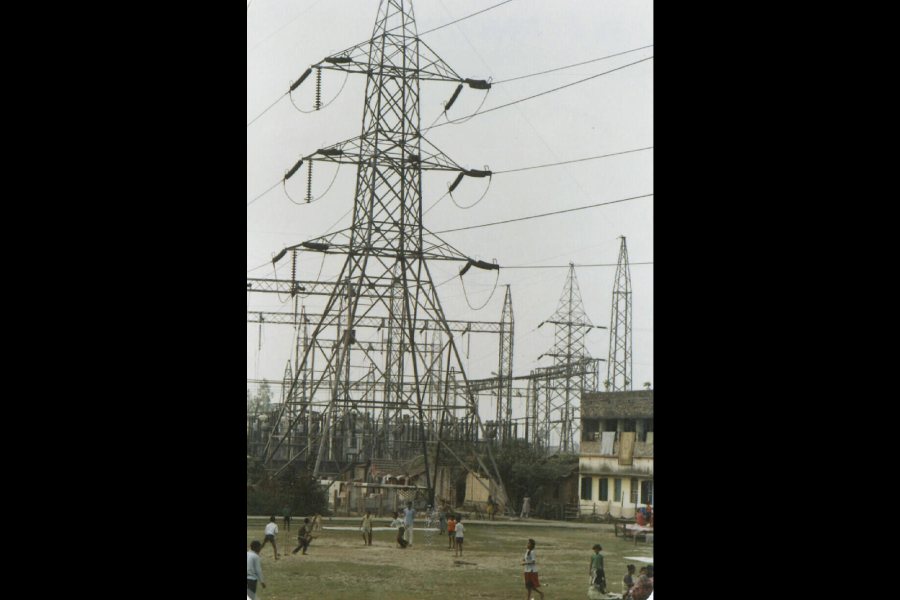The Mamata Banerjee government has allowed various government offices to replace conventional electricity meters with prepaid smart meters of the state-run power distribution utility to enable the use of prepaid power.
This move, the government hopes, can help the West Bengal State Electricity Distribution Company Limited (WBSEDCL) relieve itself of some of the major financial burden that it has been under for years.
Prepaid smart meters work along the lines of prepaid cellphone connections. Electricity supply stops after a certain point when the prepaid amount is exhausted.
The Narendra Modi government at the Centre has been pushing state governments to shift to prepaid meters for around four years now. The Trinamool Congress-led Bengal government — on account of the chief minister’s principled opposition to the concept — had been resisting the change, as it could hurt the masses when domestic consumers are made to switch to the new structure.
The decision by Nabanna comes in the wake of the WBSEDCL's inability to recover electricity dues in the conventional postpaid structure from the state government’s own offices.
As of September 30, 2024, the WBSEDCL’s outstanding dues from various departments and parastatals of the state government stood at ₹1,511.83 crore.
“The WBSEDCL has been facing trouble, as it cannot even recover electricity bills from various state government offices. The chief minister repeatedly raised the issue over the past few months. Installation of prepaid smart meters in such offices would help...,” said a senior government official.
An order from the state finance department on October 28 made it clear that all state government offices would be able to recharge prepaid smart meters every month.
A senior bureaucrat admitted that the WBSEDCL had been finding it difficult to recover dues in electricity bills from the state government’s offices, which contributed to its financial problems. At the end of the 2023-24 fiscal, the WBSEDCL's total debt stood at ₹15,439.11 crore.
“The major defaulters are gram panchayats, panchayat samitis and municipalities.… They could not pay electricity bills on time as their income dried up. They could not levy taxes such as the water tax because of the state’s policy of getting rid of taxes that burden the masses,” said an official.
He added that prepaid smart meters might make recharging problematic for rural or urban local bodies.
Sources said the decision to introduce smart meters in government offices was significant as it was being viewed as the first major step towards implementing the Revamped Distribution Sector Scheme (RDSS) launched by the BJP-led Centre. They said Bengal would be denied grants in the power sector and technologically lag behind other states if it did not implement the central scheme.
“This is why it is important to implement the RDSS in Bengal. The WBSEDCL plans to introduce it in two phases. In the first phase, smart meters will be introduced in government offices and for commercial users. In the second, domestic smart meters will be introduced,” said a source.
Trinamool has accused the Centre of stopping all financial grants to install smart meters under the RDSS.
The supply and installation of new meters in Bengal have been entrusted to a private agency, which is responsible for the supply, delivery, installation, commissioning, and operation of the process being carried out in phases. Earlier this year, the state awarded a contract of ₹2,246 crore to install 22 lakh smart meters.
The Left has repeatedly attacked the Modi government for working to weaken state-run discoms.
Worker unions of the state-run power sector have warned that domestic consumers would eventually have to pay more for electricity and private players could be encouraged to enter the field of power distribution.
“The smart meter system seeks to eventually eliminate the cross-subsidy system, in which consumers with lower consumption pay less and others who consume more units pay more, per unit,” said a source. “There are fears that with smart meters, everyone will have to pay the same rate for electricity, potentially burdening poorer consumers."
A section of officials remain skeptical over whether replacing conventional meters with smart meters would be a smooth transition for the 2.03 crore domestic consumers of the WBSEDCL.
“It is easy to install smart meters in government offices…. But in the case of the 2.03 crore domestic consumers, it is easier said than done, as there could be stiff resistance from the common people,” said a source.
Already, small business owners and farmers led by the CPM’s labour and farm wings have started agitating against smart meters, alleging they would hurt the interests of lower income groups and farmers who depend heavily on electricity to irrigate fields.
Owing to the fear of agitations in rural and semi-rural areas, the state government might delay smart meters for domestic users.
A veteran in the ruling dispensation said it was unlikely that domestic users would have to shift to smart meters ahead of the 2026 Assembly polls. "But this government remains determined to introduce smart meters in government and parastatal establishments at the earliest so that the WBSEDCL can breathe a little,” he said.










